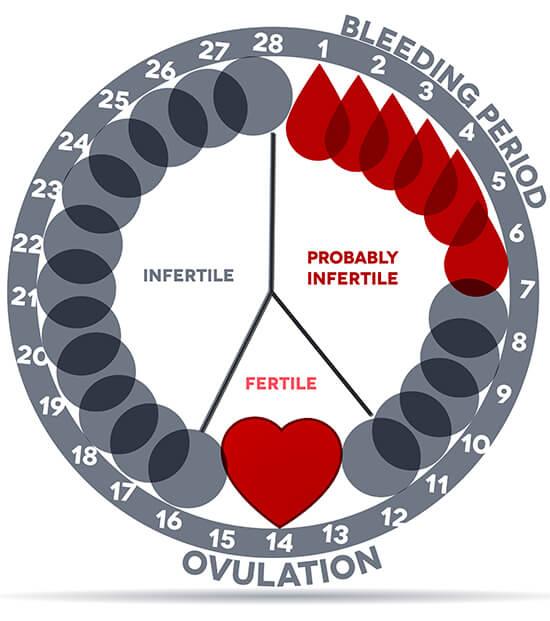Period calculator and calendar give you accurate ovulation, menstrual and fertile days predictions to plan a baby, prevent pregnancy, or better avoid it. Trying to find out when your period is due? Then you should use this period calculator so that you can plan your things better. You can get your personalized menstrual period calendar when you enter your details. This also helps if you are worried about your late period or irregular menses. Why hesitate when you can easily track your periods with this menstrual cycle calculator.
What Is Menstrual Period?
Menstrual period or menstruation is a woman’s monthly bleeding. This happens when you ovulate, and the egg is not fertilized. Therefore, your body sheds the endometrium (the lining of the uterus) causing bleeding. It flows from the uterus through a small cervical opening, and it passes out through the vagina. The bleeding lasts for three to five days. Menstrual period, also known as menses are a part of woman’s normal sexual health during reproductive age.
How To Calculate A Menstrual Cycle And Menstrual Period?
The menstrual cycle begins on the first day of your period. In other words, day one of the cycle is the day one of your period, cycle day two is the second day of your period and so on. In general, bleeding is there for three to five days and differs from one woman to another.
An important point to note is that the cycle begins from the day of your regular bleeding but not spotting. For instance, you started spotting on March 3, but the actual bleeding began a day later. So the first day of your menstrual cycle is March 4. Let's say you bleed for five days, so, the duration of your menstrual period is five days for the month of March.
Now, if your next period started on April 2, then your menstrual cycle length is the number of days from March 4 to April 1 (a day before your next period), which is 29 days. You should not count the first day of your next period because that day will fall under the next menstrual cycle.
In general, menstrual period is the number of days you bleed regularly and menstrual cycle is the number of days from first day of your last period (LMP) to a day before your next period starts. The average length of the menstrual cycle is 28 days but varies from person to person.
Why Is Menstrual Period Important To Track?
It is important to track menstrual period and the cycle for some reasons. The more you understand about your body and the menstrual cycle, the more quickly you can know if something is amiss. A change in menstrual cycle is often a symptom of a variety of health issues in women.
It is also important to track the menstrual periods if you are planning to conceive or if you are trying to have a safe sex to avoid pregnancy.
The primary goal of tracking your monthly periods is to estimate the length of the menstrual cycle and assume the possible time of ovulation. If you are trying for pregnancy, you can have an intercourse around the ovulation time, and if you want to avoid pregnancy, you should abstain from sex for some days before and after ovulation.
Also when your periods become irregular, or you notice a change in amount and duration of bleeding, it may indicate health conditions such as thyroid issue, hormonal fluctuations, diabetes, liver problems, gaining or losing a significant amount of weight, extreme stress or adopting a new exercise routine. If irregular menstrual periods are coupled with any other symptoms, you should check with your OB-GYN.
What is Menstrual Period Tracker? – Know Your Due Period!
The menstrual period Tracker or calculator takes inputs from user like first day of your last period(LMP) and the average length of your menstrual cycle to estimate your next due period, Fertile Days ,Ovulation day and Safe Days. MomJunction Period calculator predicts the future periods and ovulation phase for a year so that you may plan for a special event that is period-free.
How To Use Menstrual Period Calculator?
It is quite simple 3 step process to calculate your next period and your menstrual cycle using MomJunction period calculator. Also, download customised menstrual calender for year.
- Enter the first day of your last menstrual period.
- Enter the average length of the menstrual cycle.
- Average duration of the last period.
Once you share all the above information,period calculator will share your following menstrual date for a year, fertility calendar, ovulation phase, fertile phase and estimated due date.




